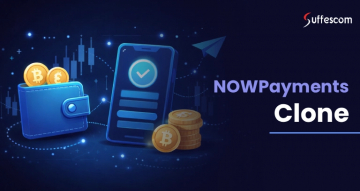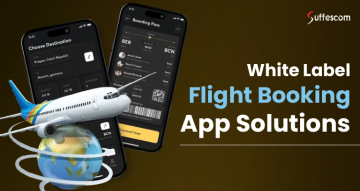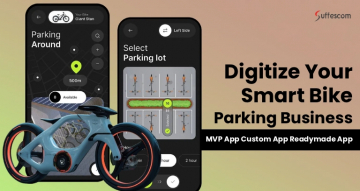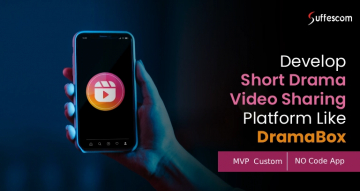Develop AI-Driven Virtual Partners and Power Digital Relationships
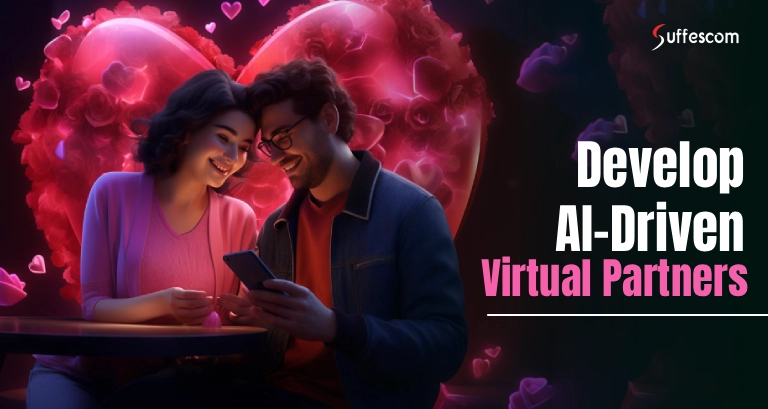
People are craving connection. Not just quick chats, but companionship, support, and someone who listens anytime. That’s where AI virtual partners come in.
What this really means is you can now build apps where users create companions who talk, remember, react, and grow alongside them. For some, it’s friendship. For others, it’s romance. And for many, it’s simply having someone who understands.
An AI virtual partner is a customizable companion that chats via text, voice, or avatars, remembers context, and responds emotionally to support users in relationships, roleplay, or wellness.
What is an AI Virtual Partner?
An AI virtual partner is not just a chatbot. It’s a mix of natural language processing, sentiment detection, adaptive memory, and user-driven customization. Users can define their partner’s voice, look, and personality, then interact as if it’s a friend, partner, or confidant.
Why This Matters Right Now?
Loneliness is rising. People want on-demand companionship that feels personal. Businesses see high retention and monetization potential in apps that blend therapy, romance, and entertainment. AI-driven partner apps deliver all three.
Core Workflow of an AI Virtual Partner App
- Users are connecting via text, voice, or avatars, typing messages, speaking, and/or uploading images. When users form their message, it takes the previous context into account.
- When users interact with the app, background machine learning models, algorithms that make predictions about text or language based on past data.
- The emotional intelligence allows the app to read out the responses empathetically.
- The user preferences, like tone and writing style, are easily understood by the app and therefore offer personalized interactions.
- The responses are continuously updated with refined tone, responsiveness, and style.
Unlock the Future of Companionship with AI-Driven Virtual Partners App Development.
Salient Features of AI-Driven Virtual Partners App
1. Conversational AI
Enables the virtual companion to have meaningful, contextually-aware and emotionally intelligent interactions with the user. The app uses natural language processing (NLP) algorithms to understand and interpret verbal communication and respond in human-like ways.
2. Emotional Intelligence
An AI-powered virtual partner app that can determine the user’s emotional state through text analysis or vocal recognition. The virtual partner employs a professional-level analysis of undertones and sentiment and even more subtle emotional indicators in a way that allows adjusted responses.
3. Personality Customization
Uses machine learning to change its behavior, so the virtual partner is even more aligned with a user's reaction to their changing preferences. This means the experience is personalized to a greater extent and potentially makes the virtual partner less artificial, and hopefully, makes the experiences feel real.
4. Context-Aware Conversations
It can typically remember prior interactions and take that knowledge and integrate it in future interactions. This skill of memory develops a greater feeling of personal attachment, and a greater sense of continuity for the user, as the virtual partner appears to have a "memory" for the user's daily life, preferences, and past conversations.
5. Real-Time Help and Feedback
This capability provides users with an always available, consistently accessible comfort source or realization of a partner for emotional regulation, which is similar to therapy or counselling.
6. Activity-Driven Engagement
Activities may include games, quizzes, challenges, collaborations and teamwork activities that users can do together with a virtual partner. This keeps the user engaged, and the partner is more than just a conversation partner as the virtual partner is a part of the user's experiences, allowing for creativity in experiences and the joy of participation.
7. Virtual Dates
The app is able to offer many virtual date experiences ranging from simple activities like virtual exploratory walks in a park, or watching a movie together, to more intricate simulations where the users are role-playing various scenarios, which end in a more traditional date of having dinner in a restaurant or hanging out and conversing at home.
8. Progress Tracking
Users should also be provided an opportunity to track how their relationship with their virtual partner develops or evolves depending on interactions with it. The app may include milestone-type features such as a listing of "relationship growth" or a progress tracker to indicate how much emotional support or companionship the user has actually received.
9. Voice & Visuals Customization
Users will have the opportunity to select from voices ranging from friendly, calming, energetic, etc. The app will empower a decision on what the user's AI companions look and sound like, allowing for an interactive user experience.
Our Top AI-Driven Virtual Partners App Solutions
1. Virtual Girlfriend Chatbot
This offers companionship, engages in silly or meaningful conversations, and is more often emotionally supportive. Users are able to explore their thinking, share ideas, request advice, or just chat for fun.
2. AI Companion App Development
These kinds of apps are generally meant to give users an interactive experience by utilizing the powers of AI to create a presumption of a relationship or friendship. They can be created for different reasons, including emotional support, entertainment, or even for mental health therapy.
3. AI Boyfriend App Development
The boyfriend chatbot would mimic the dynamics of different relationships, such as providing relationship advice, offering support during difficult times, or just having fun.
4. AI Chatbot Development
Chatbots can be developed so that they can respond to almost any input in a way that feels human-like. In terms of virtual partners, a chatbot development would involve creating chatbots together that shared friendship, companionship, entertainment or another type of mental/emotional support.
5. AI Therapeutic Assistants
An AI-powered therapeutic assistant that provides users with an outlet for responding and managing their emotional/mental health. These assistants are usually in apps or platforms and serve as either digital therapists/counsellors offering mindfulness-based techniques.
Build a Customizable AI Partner with Suffescom and Drive Business Growth!
How to Develop an AI Virtual Partner App?
1. Market Research
Before you start developing, the first stage is to validate your concept. This requires looking at the needs of your intended users, as well as the existing virtual companion market to find gaps, opportunities, or potential competitors.
2. Define Core Features
This phase includes what your virtual partner can do, including its conversational AI ability, emotional intelligence, personality customization, and contextual memory. The key functionalities are prioritized to satisfy the users’ desire, while still providing a compelling, user-friendly experience.
3. UI/UX Design
The interface needs to be aesthetically pleasing and represent the emotional tone of the virtual partner. It needs to be simple and defined, with no confusion about navigation pathways, and seamless integration between the various features.
4. Conversational AI System
The conversational AI exists as an amalgam of advanced Natural Language Processing (NLP) techniques and machine learning algorithms. It facilitates human-like understanding, processing, and generative responses. The conversational AI is trained by massive datasets to recognize, and comprehend alternate forms of communication, including sentiment, tone, and context.
5. Necessary Integrations
The emotional intelligence integration will be paired with sentiment analysis algorithms to determine whether the user is happy, sad, anxious, or excited. Text-to-speech engines allow users to choose whatever voice they would like and with whatever tone they would like, be it calming, cheerful, and playful.
Real-time interaction capabilities enable text and voice conversation in real-time but also include video call functionality, providing a more immersive interaction experience, they can feel as if they are speaking face-to-face with their partner.
6. Security And Privacy
During this phase, strong encryption methods are executed for users' conversations, data and personal information. The adherence to data protection laws, such as GDPR or CCPA, is also required in this phase. Ensuring security and privacy makes users feel safe while using your virtual partner, which can enhance trust and make users favourable to interacting with it.
7. Test & Optimize
This phase includes vigorous testing of the conversational AI, emotional intelligence, personalization capabilities, and overall performance of the app on multiple devices. Once testing is complete, and the app is stable, necessary optimizations are performed for the different platforms like iOS & Android.
8. Launch & Maintenance
The AI-driven virtual app is submitted to the desired app stores for public consumption. Further, the maintenance services are provided to address the user feedback, track the performance metrics, new updates, and resolve irregularities, if any.
Popular Virtual AI Partner Apps Offering AI-Powered Relationships
1. Replika
Replika is a relatively popular AI virtual companion explicitly designed for emotional support and companionship. The user creates an AI friend, and that friend learns from their chats and conversations, modifying its personality and style over time.
2. My Virtual Lover
My Virtual Lover is an AI-driven app that interprets romantic companions and has customizable personalities. It allows users to chat with their AI companions in a flirtatious way while responding to the emotions in real time, so that the AI will change its personality according to your behaviors.
3. Soulmate AI
Soulmate AI is a platform that derives information about your personality and desires for a relationship, allowing it to establish a personalized interaction style. The goal of the app was to develop long-term interactions with the user, providing emotional support, romantic dialogue, and companionship.
How Does the AI-Powered Virtual Partners App Make Money?
1. Subscription Model
Users pay either a monthly or annual recurring fee for premium features, such as increased memory, personalized voice, visuals, etc.
2. In-App Purchases
A certain amount of money is charged from the users by allowing them to buy premium features, customized avatars, and build AI-powered relationships.
3. Pay-Per-Use
Users buy credits or pay for single interactions, such as extended chats, where a user spends money based on their use.
4. Advertising
A designated space on the AI-driven virtual companion app is dedicated to displaying ads in exchange for money, adding to the revenue generation.
5. Affiliate Marketing
The businesses generate revenue where other platforms' products and services are promoted , which is mutually beneficial for both parties.
6. Data Monetization:
Anonymized data from user interactions is sold to other organizations, helping them gain insights about user behavior, for which hefty money is charged.
How Much Does it Cost to Build a Customizable AI Virtual Partner App?
The AI-powered virtual partner app development cost is usually $10000-$25000, depending upon numerous factors mentioned below;
- App's Complexity
- Features
- Technology Stacks
- Third-party API Integrations
- Platform Choice
- Ongoing Maintenance & Support
- Custom AI model
- Geolocation of the Development Firm
Get in touch with a reliable AI app development company and transform your app ideas into reality.
Future of AI-Powered Virtual Partners in Revolutionizing Romantic Relationships
AI-driven virtual partner apps are poised to be an exciting area for growth in the years to come. They will integrate advanced technologies such as AR/VR, AI personalities with greater evolution, and AI agents for more realistic interactions and emotional connections, offering more immersive and flexible functionality. In time, these apps will be fully customizable companions, providing support, companionship and specialized advice in whatever area is needed i.e mental health, relationships, entertainment, etc.
The combination of AR/VR will revolutionize interactivity by allowing users to be immersed in virtual places where they can interact with their AI partners in realistic situations. With augmented reality, users would experience their AI partners as virtual beings in their real-world environment, enabling hybrid experiences. Virtual reality will create spaces where users can talk, engage and build relationships with their AI partners in real-world, simulated 3D spaces and experiences. Partnering with an AR/VR app development team ensures these immersive experiences are built with cutting-edge technology and seamless user interfaces.
AI Agents will be more than virtual companions; they will act as multifunctional assistants. These agents go way beyond talking; they will help with productivity, help you do daily activities, give recommendations based on things you like, etc. As the agents learn about the user, they will have the ability to anticipate your needs, making them feel both intuitive and natural. Working with an AI agent development company can help bring these sophisticated, learning-capable companions to life with advanced algorithms and personalized functionality.
Suffescom has successfully created Ajav, an intuitive AI girlfriend app that demonstrates these capabilities in action. Learn more about this case study.
FAQs
1. How long does it take to develop an AI-powered virtual companion app?
It takes around 4-5 weeks to build an AI-driven virtual partner app, based on AI model training, feature personalization, etc.
2. Is an AI-driven virtual partner app secure?
Yes, an AI romantic partner platform is highly secure due to the use of encryption protocols, compliance with regulations GDPR/CCPA, security audits, etc.
3. What are the challenges involved in building an AI virtual companion app?
The challenges include maintaining emotional sensitivity, ensuring data privacy & security, and preventing repetitive responses.
4. Which AI technologies are used to build a romantic AI virtual partner app?
Machine learning, NLP, Generative AI, Reinforcement Learning, Sentiment Analysis & Emotion Recognition in building such a platform.
